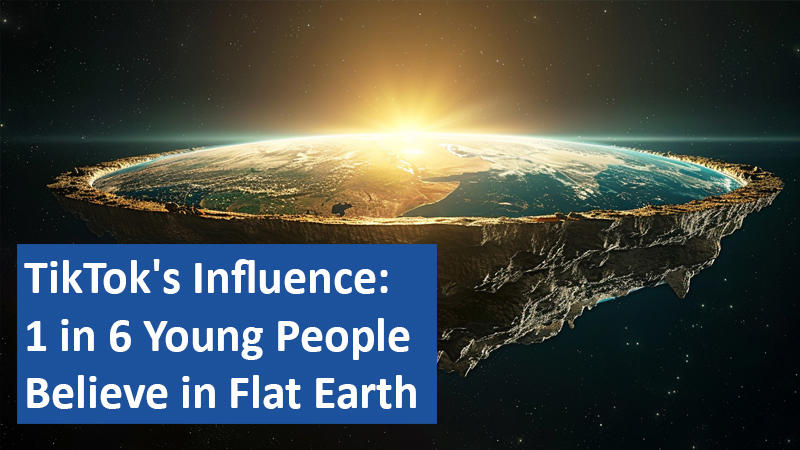TikTok’s Influence: 1 in 6 Young People Believe in Flat Earth

A recent study has revealed that a surprising number of young people in France are embracing the Flat Earth theory. The findings have raised concerns about the role of social media platforms like TikTok in shaping beliefs and spreading misinformation. This trend is sparking a debate on the need to strengthen education and critical thinking skills among youth.
By Aubree Ross
Alarming Results of a New Study
According to a recent survey by the Ifop polling institute, 16% of French youth aged 11 to 24 believe in the Flat Earth theory. This percentage increases to 29% among regular TikTok users. The study, commissioned by the Jean-Jaurès and Reboot Foundations, sought to assess how social media is impacting scientific literacy. These results highlight a significant gap in understanding basic scientific principles among younger generations.
The Spread of Conspiracy Theories
The belief in a flat Earth is not the only conspiracy theory gaining traction. The study also found that 19% of respondents believe that aliens built the Egyptian pyramids, and 27% are convinced that humans were created by a spiritual force. These findings suggest that social media may be fostering a disconnect from well-established scientific facts, undermining trust in scientific authorities.
The Role of Social Media Platforms
The study points to a strong correlation between social media usage and belief in misinformation. Platforms like TikTok, which thrive on quick, engaging content, may unintentionally spread unscientific ideas. Experts argue that the simplified presentation of complex topics can mislead young users, creating echo chambers where these false beliefs are reinforced.
Addressing the Challenge
To combat the rise of misinformation, educators, parents, and social media companies must work together. Schools need to emphasize critical thinking and the scientific method, while parents should encourage children to question and verify the information they encounter. Social media platforms, too, should promote accurate scientific content and introduce better fact-checking mechanisms to curb the spread of false information.
These findings highlight a growing challenge in promoting scientific literacy among young people. The influence of social media on shaping beliefs cannot be ignored, making it essential to foster critical thinking skills early on. Addressing this issue will require joint efforts from educators, parents, and social media platforms to ensure future generations are better equipped to navigate misinformation.
This trend raises an important question: How can we protect the next generation from the dangers of misinformation? Share your thoughts in the comments!
Based on information from www.dailygalaxy.com and own research.


